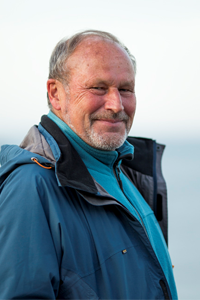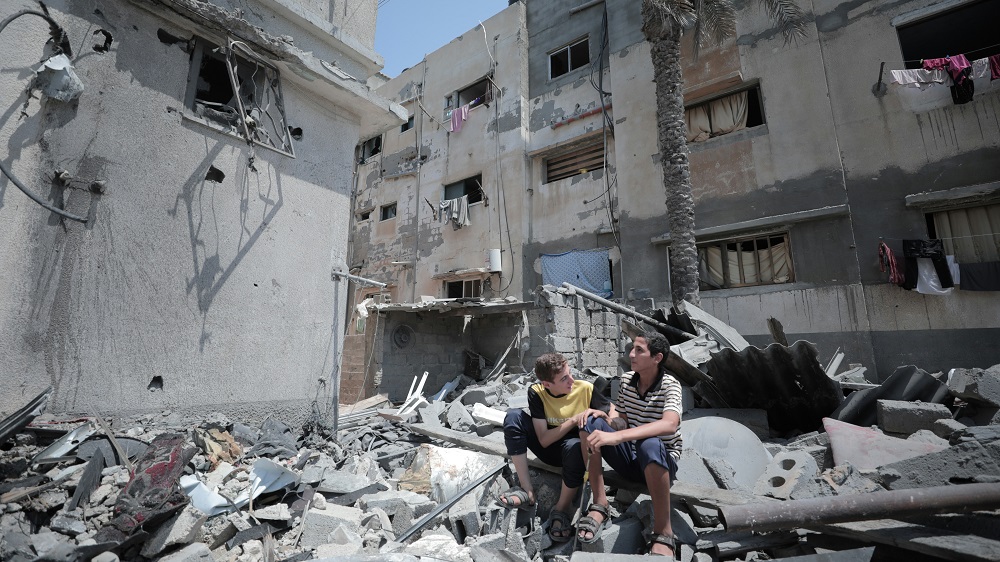Video
Here is the video of Per Fugelli Lecture 2024: The Ecology of War: Gaza as the ultimate example by Dr. Ghassan Abu-Sittah, followed by comments and a panel discussion.
New Room
Many individuals have shown interest in this event, so we have relocated it to another room within the same building: Ragnar Frisch Auditorium 1, Eilert Sundts hus.
Registration
Please note that everybody needs to register to enter the event.
Streaming
The event will be streamed live on this website.
Abstract from Dr. Ghassan Abu-Sittah
«Prolonged and intense conflict alters the biosphere in which people live. The lived space with all its constituents and the way people interact with it is permanently changed through a multitude of modalities which act as mediators of ill-health. Rather than constitute a temporal “crisis”, conflict creates an “ecology of war” that people inhabit and whose health it shapes.
Conflict induces ill-health by altering the physical environment; the microbial environment; the body as it is changed by wounding and in many circumstances repeated wounding; social relationships as the war wound becomes a phenomenon and even the definition of the pathological as people attempt to triage multiple wounds in order to seek treatment for their health consequences.
Conflict alters the physical environment making it less hospitable and damages the infrastructure (electricity, war and sewage treatment) making it more conducive to the spread of disease. It destroys the infrastructure of health care by direct attacks on health facilities, the migration of healthcare professionals and the increase in the prevalence of counterfeit medication.
Building on his experiences from both the al-Shifa and al-Alhi Baptist hospitals in Gaza last year Ghassan Abu-Sittah will show how the Israeli war on Gaza has been sufficiently destructive and intense to have converted the Gaza Strip into an “ecology of war” that will continue to injure its inhabitants long after this war has ended. In order to envisage a post-war health system that can dismantle this ecology we need to dissect its component parts and analyze its different conduits of injury. Only then a holistic health system rather than a medical system can be built.»
About Dr. Ghassan Abu-Sittah
Dr. Ghassan Abu-Sittah is a multi-award-winning British-Palestinian Associate Professor of Surgery and a Plastic & Reconstructive Surgeon. His unique background combines the skills and expertise of a field-leading plastic surgeon, with the rigours of academia and the compassion of humanitarianism.
Abu-Sittah received his medical education at the University of Glasgow and completed his residency training in London. He became a fellow of the Royal College of Surgeons in 2010 before relocating to Lebanon a year later, where he was appointed Head of the Division of Plastic and Reconstructive Aesthetic Surgery at the renowned American University of Beirut (AUB), known as Middle East’s foremost medical centre. Here, he played a crucial role in the Center’s Pediatric War injuries program and War Injuries Multidisciplinary Clinic. In 2015, he co-founded and directed the Conflict Medicine Program at the Global Health Institute at the AUB.
Abu-Sittah has published extensively on the health consequences of prolonged conflict and on war injuries including a medical text book, “Reconstructing the War Injured Patient” and has a forthcoming book, “Treating the War Injured Child.”
He has worked as a war surgeon in Yemen, Iraq, Syria, South Lebanon and during the five wars in the Gaza Strip. Most recently when he managed to enter the Gaza strip on the 9th of October 2023, dr. Abu-Sittah spending 43 days at Shifa Hospital and Al-Ahli-Baptist Hospital caring for patients during the Israeli bombardment of Gaza, from where he also contributed crucially to the news coverage in this critical period directly from the hospital wards.
Abu-Sittah holds honorary positions at Imperial College University of London and King’s College London University, and serves as the Cinical Lead for the Operational Trauma initative at the World Health Organizations EMRO office. He also serves on the UK's National Institute of Health Research (NIHR) International Funding Committee. His work has been featured by numerous newspapers and media outlets notably La Monde, The Independent, Telegraph, BBC and CNN.
The Ghassan Abu-Sittah Childrens Fund is dedicated to the children of Gaza. providing medical attention to the children who need it the most and helping to relieve the medical sector in Gaza. More information here.
Program
| Time | What | Who |
|---|---|---|
| 15.30-16.00 | Refreshments | Everybody is welcome! |
| 16.00-16.10 | Welcome and introduction | Vice Rector Bjørn Stensaker, Prof Espen Bjertness and Prof Anne Kveim Lie |
| 16.10-16.55 | Per Fugelli Lecture 2024 «The Ecology of War: Gaza as the ultimate example» |
Dr. Ghassan Abu-Sittah |
| 16.55-17.05 |
Comments
|
Comments by: Professor Gudrun Østby, Peace Research Institute Oslo |
| 17.10-17.55 |
Panel discussion |
Participants: Jihad Ammar Al-Mahdi, Uswa Malik, Dr. Wasim Zahid, |
About Per Fugelli (1943- 2017)

Per Fugelli, a general practitioner and professor of Social Medicine at UiO's Institute of Health and Society from 1992 to 2013, ascended to prominence as a leading public intellectual in Norway during this period. His methodology bridged clinical medicine with a deep consideration of structural dynamics and social equity. Critiquing the mechanistic and narrow aspects of contemporary biomedicine, Fugelli championed a holistic perspective anchored in social justice that prioritized the welfare of marginalized communities. Embracing a broad view that encompassed individuals, populations and ecosystems, his work underscored the interconnectedness of health, the environment and society.
Through countless lectures and fearless participation in a large number of important debates, he was a prominent contributor to Norway's public space fora for a long time. He was awarded The Freedom of Expression Prize 2013.
Obituary by Barbara Casassus in The Lancet.
The Patient Earth
In 1993 Per Fugelli published an article In search of a global social medicine (pdf). This inspired Fugelli and a group of students to establish a forum called "The patient earth". The forum inspired students and researchers at the Faculty of Medicine to focus on global health.
"In each new generation of doctors, ..... this branch of medicine attracts not only analytical minds, but also people who feel a strong vocation to improve health in society by attacking plain injustice. They are impatient with the distant attitude of science." Jan P. Vandenbroucke.
Previous lectures
- 2014, Richard Horton: “The Seeress's Prophecy: a 21st century retelling”; and Anthony Costello: "The fundamental concept in social science is power" (Bertrand Russell). How can this idea help us build a global social medicine to tackle sustainable development challenges?
Comment to the 2014 arrangement by Richard Horton - Offline: Medicine's theory of relativity
- 2015, Sir Andrew Haines: "Planetary health - human health and global environmental change"
Comment to the 2015 lecture, 'Death and planetary health' by Per Fugelli - 2016, Paul Farmer: “Structural interventions to address structural violence: Global health equity in Haiti and Rwanda”
- 2017, Jennifer Leaning, Harvard University: “The Existential Vulnerability of the Rohingya: Stateless, Expelled, and Stranded in a Homogenizing World”
- 2019, Agnes Binagwaho: “Rwanda’s journey to an equitable health system”
- 2020, Vikram Patel: “Thrown Under the Bus: reimagining youth mental health in the pandemic era”
- 2021, Renzo R. Guinto: “The decolonizing power of planetary health”
- 2022, Iona Heath: The Patient Earth is sick, but the medical doctors are mainly absent.
- 2023, Tarja Halonen: Possibilities to protect the fragile earth in our time.
Event Committee 2024
- Espen Bjertness
- Anne Kveim Lie
- Sine Grude
- Kristin M. Heggen
- Helga Marie Wang-Haugseth
- Julie Ytre-Eide
- Trine Kleven
